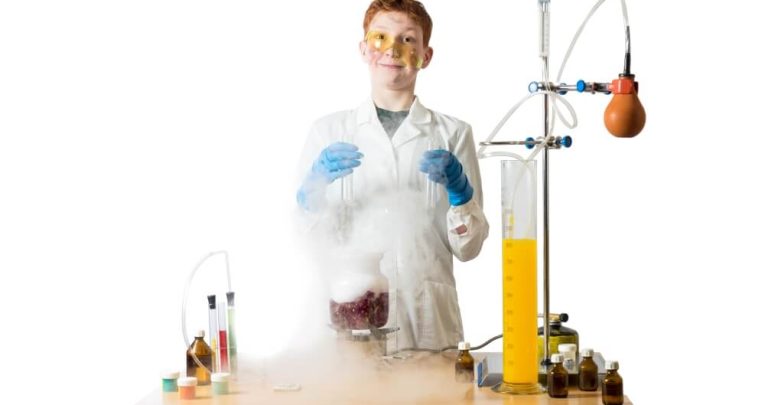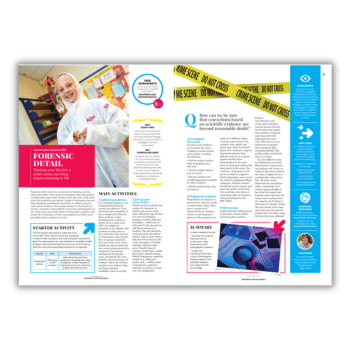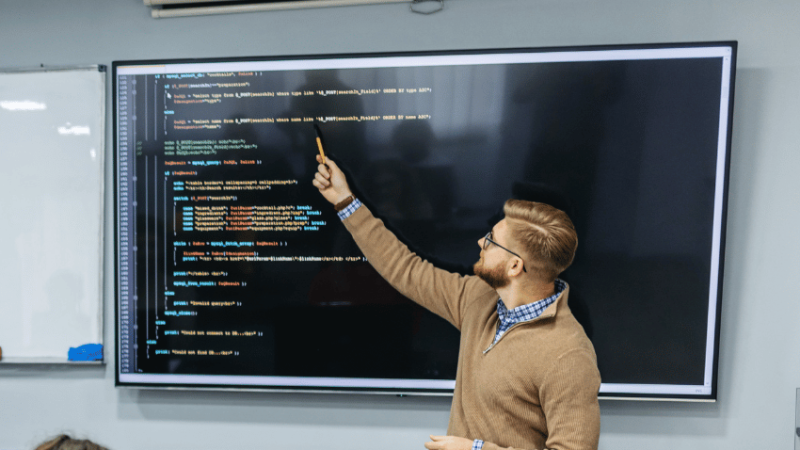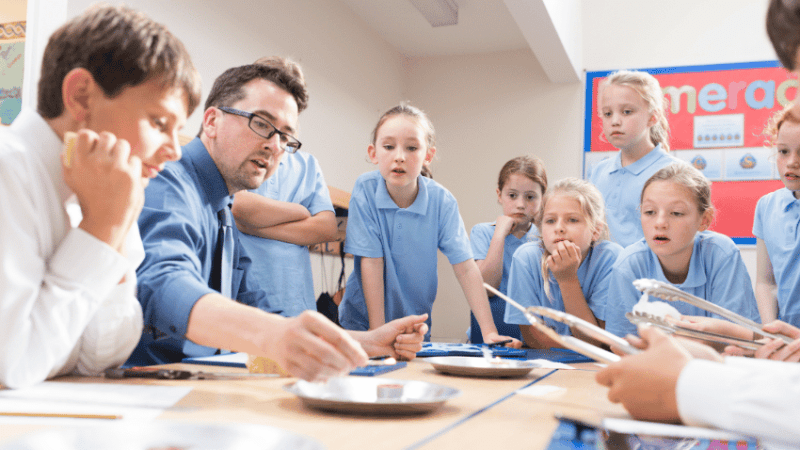The trouble with GCSE Science – “There’s simply so much to get through”

Joe Temple reflects on his growth as a science teacher and realisation that the subject as practised wasn’t preparing his students for their futures as well as it could be…

- by Joe Temple

People enter teaching for many different reasons. One of mine was that I’d often imagine myself in my teachers’ position when I was at school, and think ‘I could do a better job than that…’
It was quite arrogant to think that, of course, as I soon discovered that going into teaching involved a really steep learning curve.
Having now spent six years as a science teacher, I’ve become much more confident, better able to reflect on my own teaching and ready to acknowledge that moving forward, things need to change.
Content-oriented
The students I’ve been teaching are ‘successful’ at GCSE science, in the sense that some have successfully attained grade 9s, yet I still feel that I could be teaching them so much more. I could be giving them more of the skills they’ll need to succeed in later life, beyond what the framework currently requires.
The framework is currently so content-oriented that it’s incredibly hard to build in time for studying real life phenomena that we can investigate together and present the findings of. It limits us in terms of time, because there’s simply so much to get through.
Take how our students learn about the ‘history of the atom’, for example. They’ll learn all about the names and the dates before being assessed on them.
However, the key thing that students need to learn from studying the history of atomic research is how we build on models – not that Dalton, Democritus and Bohr all developed certain models at certain times. That ‘who/when’ information is largely irrelevant.
On top of that, there’s the treatment of global warming. A student can presently be ‘successful’ at GCSE science without once mentioning the term ‘climate change’ – which to me, seems incredible.
It’s going to be the biggest scientific challenge our students will face in their lifetimes, so how can they ‘succeed’ at school science while potentially having no grasp of climate change whatsoever?
The same cycles
In our department, we’ve always been reflective with regards to our practice. More recently, we’ve tried exercising more of the freedom we have in shaping our KS3 curriculum.
We follow the National Curriculum, of course, but the slightly lesser emphasis on facts and specifics has allowed us more opportunities to have students investigate the world around them.
Our KS3 curriculum is now based around real world phenomena, and how students can build their skills at investigating the world around them.
When I talk to other educators, I’m always conscious that there’s an element of survivor bias; we’ve all been through the education system ourselves and been successful, but we’ve also got to keep in mind those students who aren’t as successful, and who likely won’t succeed at science, however much we try.
I therefore always try to be mindful of the need to make students more engaged with the world around them – or at least want to be – so that they can be successful in applying themselves to the study of science.
I want to ensure that we don’t just do the same things again and again, endlessly repeating the same cycles.
Experimental activity
At Headland we’ve now moved from a three-year GCSE course to a two-year, which has given us more time at KS3 to build in those important science skills.
Despite that steep learning curve, I was fairly experimental as an NQT and believed that the various things I was doing were helping to build those skills, but at every step I was always required to justify what I was doing, and what progress was being made within the framework at that moment.
At the time I was impressionable, and often felt that whenever I was called upon to justify what I was doing I was almost doing something wrong, though nobody ever told me that explicitly.
To some extent, of course, it was right that had to justify what I was doing – I had to be able to support my students in making progress – but I wanted to do something different and branch out in terms of my skillset as a teacher.
Moving forward, I gradually learned to incorporate my more experimental activity into what was expected of me.
I readily acknowledge that at KS4, the best outcome for our students is achieving the best grade. We’ve tried to work around that as a department by allocating as much investigative and real world phenomena to KS3 as we can.
That way, once the students enter Y10 and we start introducing them to the content we’re going teach across KS4, they already possess the skills needed to investigate what we’re teaching them – or at least research what we’re teaching them – in order to critically evaluate what we’re doing.
Following instructions
We’ve taken GCSE content that might have previously occupied a whole lesson and allocated space to it in amended form at KS3, so that students can acquire experience of investigating the relevant area.
One example that springs to mind is homeostasis and reflexes. At KS4 it would occupy one lesson, but in assigning it to KS3 we’ve changed it and elaborated upon it. For instance, we’ve set students investigations involving the use of maggots.
The students design the investigation, perform the investigation and then investigate their own conclusions – though always with support from a teacher who’s able to guide them as to what the theories and phenomena they’re looking at actually are, and how they work.
By contrast, the standard approach at GCSE level is currently to set a mandated series of practicals that students must complete.
In one sense, this is a useful approach in that it requires teachers to oversee a practical element, rather than simply declaring to students ‘This all the content you need to know.’
However, that overlooks the fact that their method sheets are handed out to them, meaning that their ‘practical’ experience is limited to just following a set of instructions.
I’m admittedly describing a poorly-taught science lesson here, but that’s nevertheless what the majority of science education currently resembles at the moment. I just don’t think it’s good enough.
Inquisitive thinking
What I’d love to see is a framework with the spine of some big, important features that students are assessed on – things like global warming, hydrogen fuels and battery life. These are all large and complex issues that will be of huge importance for our students in the future.
I’d also love to see students tackle and attempt to figure out some open-ended problems at GCSE level, whereby students would acquire some real-world experience of applying the science they’ve been taught, possibly in the form of a controlled assessment or via coursework.
Teachers all over the world want and need to see more of the real-world, hands-on science that’s too often been overlooked in favour of theory.
I feel there needs to more emphasis on encouraging inquisitive thinking among students, rather than on what students ‘need to know.’ The subject is presently so content-heavy that teachers feel restrained as a result, and compelled to teach specific content at breakneck pace in a certain order.
I want to see teachers who feel able flex their wings, and be willing to declare ‘I’m the expert in the room, and we’re doing science today,’ rather than ‘Today, we’re going to learn about the history of science.’
Science evolved
‘The evolution of science education’ is a report published by Oxford University Press that analyses the core purpose of science education, how well-served learners are by the subject as it’s currently practised and how students can be equipped with skills and competencies to help meet the scientific challenges they’re likely to experience in their future.
Joe Temple is biology lead at Headlands School, Bridlington; you can download a mini scheme of learning for Y9 developed by Headlands School from here.







